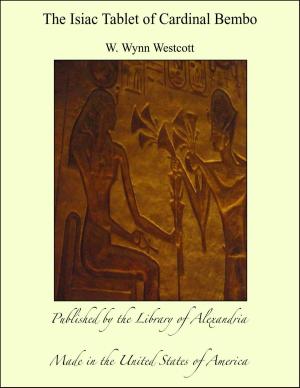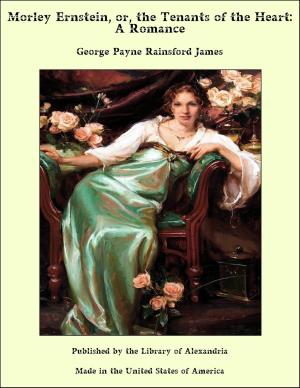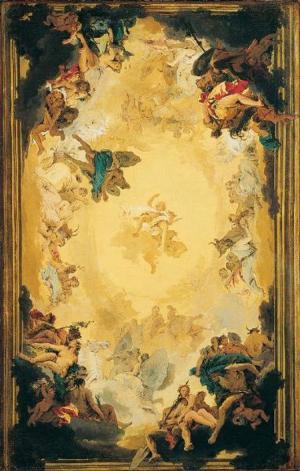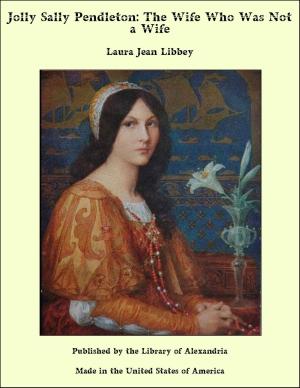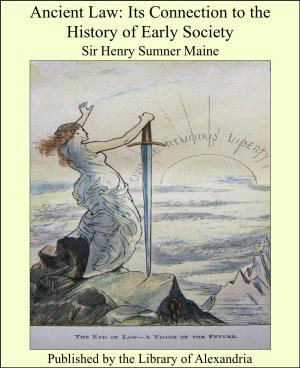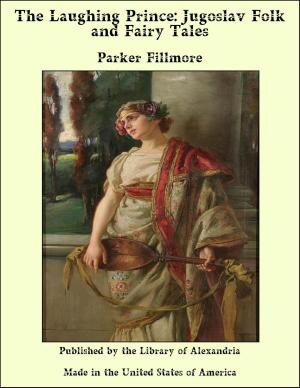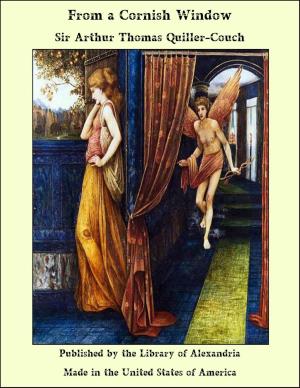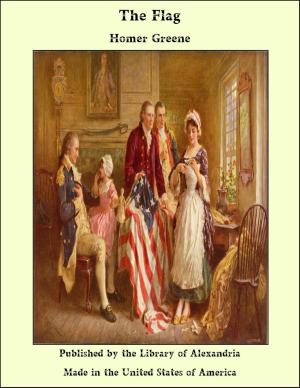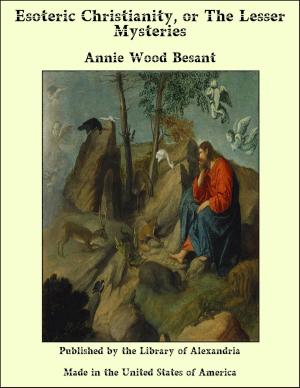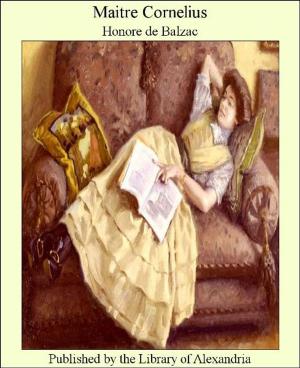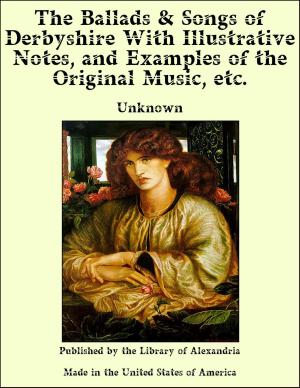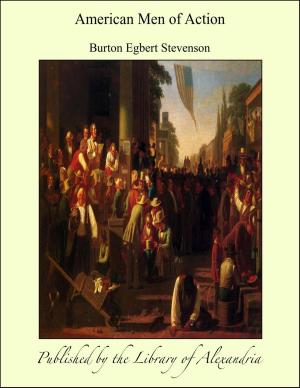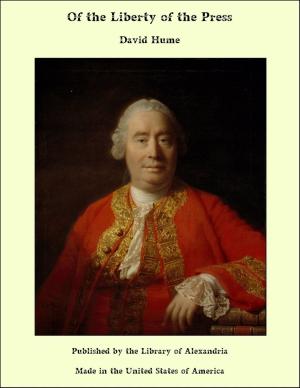The Holy Cross and Other Tales
Nonfiction, Religion & Spirituality, New Age, History, Fiction & Literature| Author: | Eugene Field | ISBN: | 9781465502469 |
| Publisher: | Library of Alexandria | Publication: | March 8, 2015 |
| Imprint: | Language: | English |
| Author: | Eugene Field |
| ISBN: | 9781465502469 |
| Publisher: | Library of Alexandria |
| Publication: | March 8, 2015 |
| Imprint: | |
| Language: | English |
ALAS, POOR YORICK! For my own part, I would select Yorick as the very forecast, in imaginative literature, of our various Eugene. Surely Shakespeare conceived the “mad rogue” of Elsinore as made up of grave and gay, of wit and gentleness, and not as a mere clown or “jig maker.” It is true that when Field put on his cap and bells, he too was “wont to set the table on a roar,” as the feasters at a hundred tables, from “Casey’s Table d’Hôte” to the banquets of the opulent East, now rise to testify. But Shakespeare plainly reveals, concerning Yorick, that mirth was not his sole attribute,—that his motley covered the sweetest nature and the tenderest heart. It could be no Otherwise with one who loved and comprehended childhood and whom the children loved. And what does Hamlet say?—“He hath borne me upon his back a thousand times … Here hung those lips that I have kissed I know not how oft!” Of what is he thinking but of his boyhood, before doubts and contemplation wrapped him in the shadow, and when in his young grief or frolic the gentle Yorick, with his jest, his “excellent fancy,” and his songs and gambols, was his comrade? Yes, Field “caught on” to his time—a complex American, with the obstreperous bizarrerie of the frontier and the artistic delicacy of our oldest culture always at odds within him—but he was, above all, a child of nature, a frolic incarnate, and just as he would have been in any time or country. Fortune had given him that unforgettable mummer’s face,—that clean-cut, mobile visage,—that animated natural mask! No one else had so deep and rich a voice for the rendering of the music and pathos of a poet’s lines, and no actor ever managed both face and voice better than he in delivering his own verses merry or sad. One night, he was seen among the audience at “Uncut Leaves,” and was instantly requested to do something towards the evening’s entertainment. As he was not in evening dress, he refused to take the platform, but stood up in the lank length of an ulster, from his corner seat, and recited “Dibdin’s Ghost” and “Two Opinions” in a manner which blighted the chances of the readers that came after him. It is true that no clown ever equalled the number and lawlessness of his practical jokes. Above all, every friend that he had—except the Dean of his profession, for whom he did exhibit unbounded and filial reverence—was soon or late a victim of his whimsicality, or else justly distrusted the measure of Field’s regard for him. Nor was the friendship perfected until one bestirred himself to pay Eugene back in kind. As to this, I am only one of scores now speaking from personal experience. There seemed to be no doubt in his mind that the victim of his fun, even when it outraged common sensibilities, must enjoy it as much as he. Who but Eugene, after being the welcome guest, at a European capital, of one of our most ambitious and refined ambassadors, would have written a lyric, sounding the praises of a German “onion pie,” ending each stanza with Ach, Liebe! Ach, mein Gott! and would have printed it in America, with his host’s initials affixed
ALAS, POOR YORICK! For my own part, I would select Yorick as the very forecast, in imaginative literature, of our various Eugene. Surely Shakespeare conceived the “mad rogue” of Elsinore as made up of grave and gay, of wit and gentleness, and not as a mere clown or “jig maker.” It is true that when Field put on his cap and bells, he too was “wont to set the table on a roar,” as the feasters at a hundred tables, from “Casey’s Table d’Hôte” to the banquets of the opulent East, now rise to testify. But Shakespeare plainly reveals, concerning Yorick, that mirth was not his sole attribute,—that his motley covered the sweetest nature and the tenderest heart. It could be no Otherwise with one who loved and comprehended childhood and whom the children loved. And what does Hamlet say?—“He hath borne me upon his back a thousand times … Here hung those lips that I have kissed I know not how oft!” Of what is he thinking but of his boyhood, before doubts and contemplation wrapped him in the shadow, and when in his young grief or frolic the gentle Yorick, with his jest, his “excellent fancy,” and his songs and gambols, was his comrade? Yes, Field “caught on” to his time—a complex American, with the obstreperous bizarrerie of the frontier and the artistic delicacy of our oldest culture always at odds within him—but he was, above all, a child of nature, a frolic incarnate, and just as he would have been in any time or country. Fortune had given him that unforgettable mummer’s face,—that clean-cut, mobile visage,—that animated natural mask! No one else had so deep and rich a voice for the rendering of the music and pathos of a poet’s lines, and no actor ever managed both face and voice better than he in delivering his own verses merry or sad. One night, he was seen among the audience at “Uncut Leaves,” and was instantly requested to do something towards the evening’s entertainment. As he was not in evening dress, he refused to take the platform, but stood up in the lank length of an ulster, from his corner seat, and recited “Dibdin’s Ghost” and “Two Opinions” in a manner which blighted the chances of the readers that came after him. It is true that no clown ever equalled the number and lawlessness of his practical jokes. Above all, every friend that he had—except the Dean of his profession, for whom he did exhibit unbounded and filial reverence—was soon or late a victim of his whimsicality, or else justly distrusted the measure of Field’s regard for him. Nor was the friendship perfected until one bestirred himself to pay Eugene back in kind. As to this, I am only one of scores now speaking from personal experience. There seemed to be no doubt in his mind that the victim of his fun, even when it outraged common sensibilities, must enjoy it as much as he. Who but Eugene, after being the welcome guest, at a European capital, of one of our most ambitious and refined ambassadors, would have written a lyric, sounding the praises of a German “onion pie,” ending each stanza with Ach, Liebe! Ach, mein Gott! and would have printed it in America, with his host’s initials affixed

